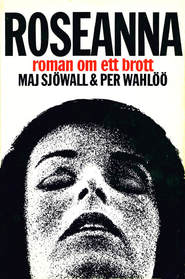
The first Martin Beck mystery, 1965's Roseanna, is a solid and quite simple story that deliberately tamps down any flamboyance or peculiarities that often make the Golden Age puzzles of three decades prior such amusing reads. No egghead-shaped detectives with fussy mustaches or slang-speaking, upper-class amateur detectives are found here. Martin Beck – always referred to in the third-person narration by his full name, never just Beck – is aggressively ordinary, neither particularly inspired nor incompetent as a detective. Sjowall and Wahloo seem to prefer a sketch to a full composite, at least with this book: we know Martin Beck has a wife and two children, and that the marriage has staled; we know that an inability to resolve a case can haunt him; we know he is middle-aged and in average shape. But the authors barely allow Beck to be more intriguing or accessible to the reader than the other characters, including his colleagues in the division. And that choice is okay, but it certainly keeps one dispassionate, even when the crime under investigation earns anger and pathos from the reader.
A woman's naked body is found in the canal waters, and investigation of missing persons in Sweden yields no success. Beck and his colleagues, including the sardonic, talkative Kollberg and the quieter Melander, are forced to wait as inquiries are made globally. (One principal theme seems to be the act of waiting, or the reliance on factors beyond a person's control, in this novel.) A break comes with contact from a sheriff named Kafka in Lincoln, Nebraska. The woman is identified as Roseanna McGraw, an American who was a passenger on a tour boat. Through interviews and examination of vacation photos and film, Beck and his colleagues identify a potential suspect, and then wait once more when they hope that patient and prolonged surveillance may be enough to catch the person in another act of assault.

 RSS Feed
RSS Feed